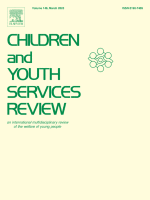This paper is a systematic review of studies that examined the implementation and/or effectiveness of the Indian Child Welfare Act (ICWA). ICWA was enacted in 1978 in response to the disproportionate number of American Indian children in non-American Indian out-of-home placements and to enhance the stability of American Indian families and tribes.
Searches of 7 bibliographic databases and 3 advocacy organization websites yielded 408 studies completed since November 1978. Following duplicate removal and double-independent screening based on a priori inclusion criteria, 16 studies were included for review. Studies on the effectiveness of ICWA were mixed, though numerous positive results were found.
Several studies found that children were placed with relatives or tribal affiliates in accordance with ICWA. One study also found active efforts to prevent the break-up of the family. Studies on the implementation of ICWA found limited capacity for many ICWA programs, improvements from cultural training, underfunding for many programs, lack of tracking systems, use of qualified experts, communication with tribes, and identification practices for American Indian children.
Noteworthy facilitators of ICWA implementation included use of Child and Family Service plans and case worker training on ICWA. Barriers to ICWA included cultural differences between tribes and the child welfare system, lack of a specific unit dedicated to American Indian child welfare, and a lack of American Indian foster homes and tribal resources to respond to notices. Implications for practice, policy, and future research are discussed.

